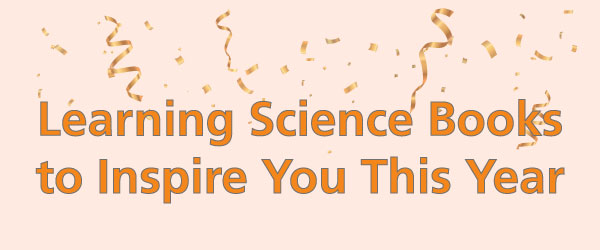
According to the publisher McGraw-Hill, learning science “combines research, data, and practices to help educators teach better and students learn more. It draws from disciplines including cognitive neuroscience, learning analytics, data science, behavioral economics, and educational psychology.”
As learning experience designers and educators, we are the beneficiaries of the educational and cognitive psychology research that focuses on memory and learning. We now have a solid collection of learning science books that explain the science of learning and how to apply it. What fascinates me is how each book is unique in the topics it covers and the approach the authors take. In this article, I review three of the latest books on learning science—one is a new edition.
Learning Science for Instructional Designers: from Cognition to Application by Clark Quinn
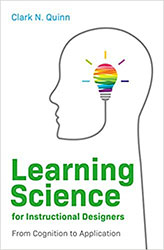 Clark Quinn’s latest book is a welcome addition to the collection of learning science books for instructional design. It is user friendly and conversational though the concepts are deep. Perhaps my favorite feature is that he sprinkles learning nuggets throughout every chapter. These summarize one key concept and explain how to apply it.
Clark Quinn’s latest book is a welcome addition to the collection of learning science books for instructional design. It is user friendly and conversational though the concepts are deep. Perhaps my favorite feature is that he sprinkles learning nuggets throughout every chapter. These summarize one key concept and explain how to apply it.
In the foundation material of the first few chapters, I was happy to see that Quinn takes readers beyond the information processing model. Though the model is important for understanding cognitive load, encoding and retrieval, it is not robust enough to explain the full story of how we learn. Fortunately, Learning Science for Instructional Designers also explains distributed cognition, situational cognition and social learning theory. Understanding these models will add to your learning design repertoire.
In a subsequent chapter, Quinn provides an excellent look at the effects of emotion on learning. There’s much talk about engagement in our field, but what does it really mean? This chapter explores the multi-dimensional aspect of affect on human cognition.
As much as I liked every chapter in this book, perhaps my favorites are the final two, which detail how to put it all together in practice. The evidence for basing one’s instructional design practice on learning science (without being overly rigid) is overwhelming. Learning Science for Instructional Designers is available at the ATD Bookstore and Amazon.
Evidence Based Training Methods: A Guide for Training Professionals, 3rd Edition by Ruth Colvin Clark
In the introduction to Evidence-Based Training Methods, well-known author Ruth Colvin Clark updates one of her classic texts with the most recent research findings, two new chapters covering feedback and animation, and updates to other chapters, including learning games.
In this hefty book, Clark divides her work into five sections. There’s the foundational material followed by sections on evidence-based principles for using media; principles for the use of examples and practice; guidelines for lessons and games; and methods for evidence-based training design.
As in Learning Science for Instructional Designers, Clark also uses techniques to enhance learning while reading. At the start of each chapter, she poses a question to readers that readies the mind to seek answers found within the chapter. There are also guidelines throughout the book and an Appendix with a synopsis of evidence-based instructional methods. These seemingly simple techniques belie the value they provide the reader.
Evidence-Based Training Methods is a book for both new and experienced learning designers. On so many diverse topics, Clark interprets research findings into applicable guidelines for effective instructional design. Some of the key topics she delves into are learner engagement; the effects of different media on learning; how and when to use examples and practice; features of effective explanations; methods to improve critical thinking; the pitfalls and benefits of digital games; and finally how to apply evidence-based practice to your work.
If your brain is about to explode, Clark has you covered. As mentioned above, you’ll find a synopsis of guidelines in the Appendix. Evidence-Based Training Methods is available at the ATD book store and Amazon.
Active Learning Online by Stephen Kosslyn
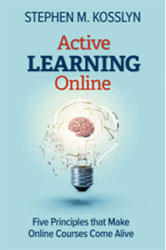 Stephen Kosslyn, who has a storied career in psychology and educational research, wrote this book to help instructors turn their lecture-based virtual classrooms into active learning environments. Every chapter explains one learning science principle and how to apply it to make learning engaging, interactive and effective.
Stephen Kosslyn, who has a storied career in psychology and educational research, wrote this book to help instructors turn their lecture-based virtual classrooms into active learning environments. Every chapter explains one learning science principle and how to apply it to make learning engaging, interactive and effective.
The book covers these principles of learning: deep processing, chunking, building associations, dual coding, deliberate practice, combining principles and motivation. Although the intended audience seems to be educators, the ideas can easily be applied to facilitation and learning design.
Active Learning Online is a quick read and inexpensive. It’s available on Amazon.
In closing, I’d like to say that the more we merge creative thinking with cognitive science, the more effective our work will be. There are now enough books to explain the principles of learning science that there should be no excuse for a lack of knowledge in this area.
Resources:
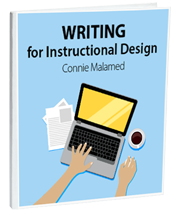
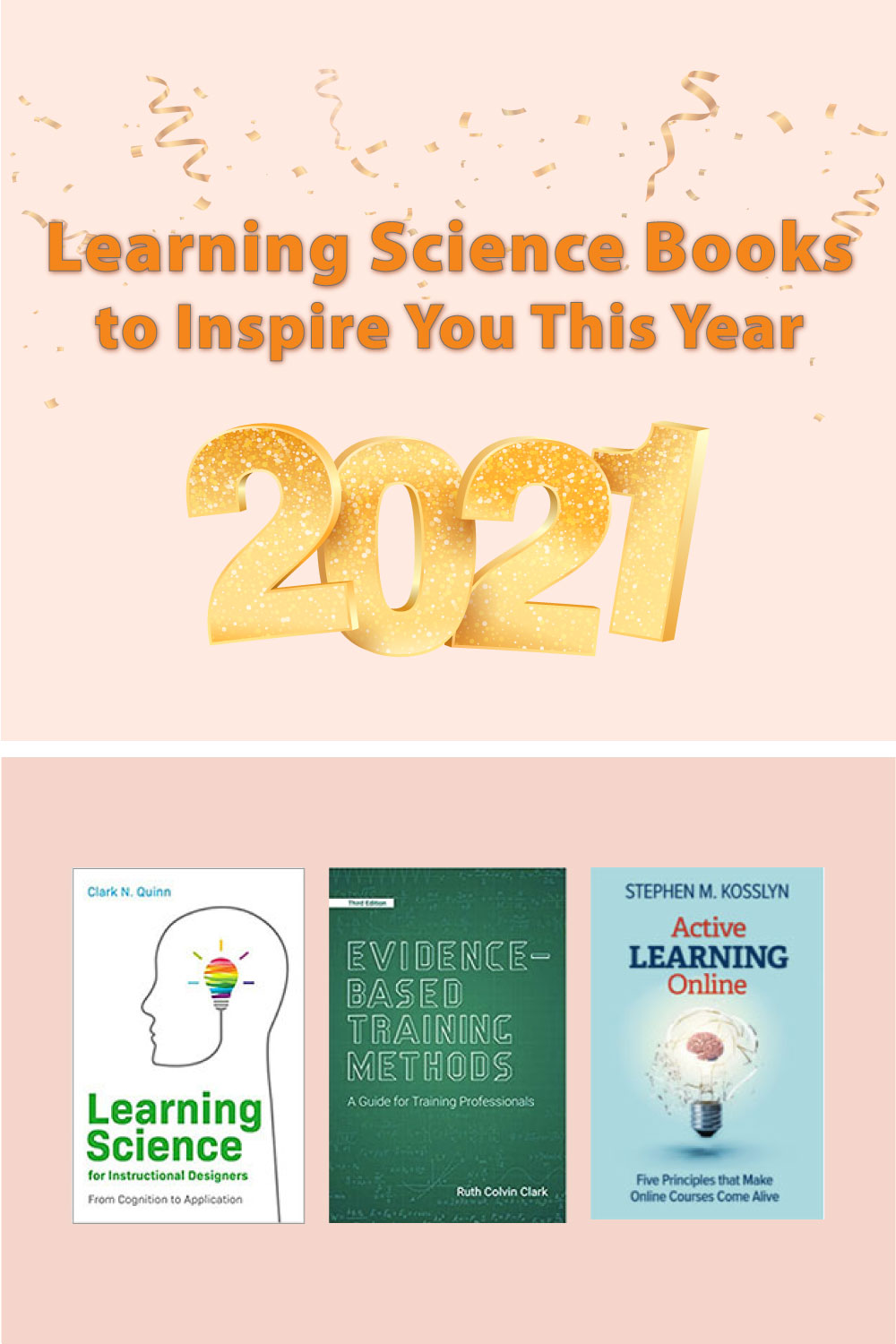

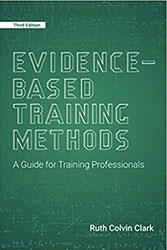
Hi Daniel,
That’s the book I want to write, LOL! No, I haven’t seen one that covers this topic. The closest I’ve seen are books about writing for multimedia. That might be a little helpful. I do have a few recommendations for writing audio scripts here: The Art of Writing Great Voice Over Scripts. Let me know if you find anything.
Connie
Thanks for sharing Connie!!
I’m also looking for some good books about writing course audio scripts. Can you suggest some?